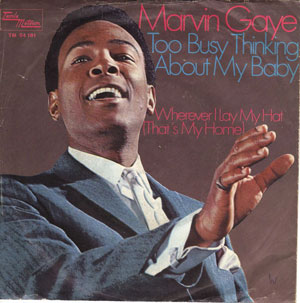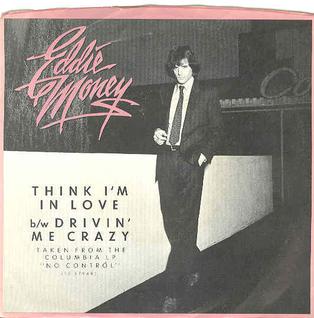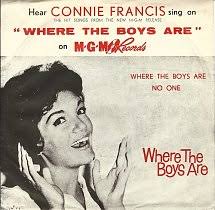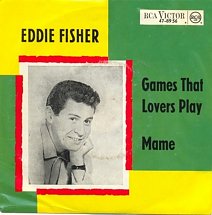
"I Can't Get Next to You" is a 1969 No. 1 single recorded by the Temptations and written by Norman Whitfield and Barrett Strong for the Gordy (Motown) label. The song was a No. 1 single on the Billboard Top Pop Singles chart for two weeks in 1969, from October 18 to October 25, replacing "Sugar, Sugar" by the Archies and replaced by "Suspicious Minds" by Elvis Presley. The single was also a No. 1 hit on the Billboard Top R&B Singles for five weeks, from October 4 to November 1, replacing "Oh, What a Night" by the Dells, and replaced by another Motown song, "Baby I'm For Real" by the Originals.

"Too Busy Thinking About My Baby" is a Motown song written by Norman Whitfield, Barrett Strong, and Janie Bradford. The song was first recorded by The Temptations as a track on their 1966 album Gettin' Ready. Eddie Kendricks sings lead on the recording, which was produced by Whitfield. Jimmy Ruffin also recorded a version with The Temptations providing background vocals in 1966. It remained unreleased until 1997.

"If" is a song written by American singer-songwriter David Gates in 1971. Originally popularized by his group Bread, "If" charted at No. 4 on the U.S. Billboard Hot 100 when released as a single in 1971 and No. 6 in Canada. It also spent three weeks at No. 1 on the U.S. Easy Listening chart, and one week at the top of the Canadian AC chart.

"Red Roses for a Blue Lady" is a 1948 popular song by Sid Tepper and Roy C. Bennett. It has been recorded by a number of performers. Actor-singer John Laurenz (1909–1958) was the first to record the song for Mercury Records. It rose to #2 on the weekly “Your Hit Parade” radio survey in the spring of 1949. The original 78rpm single was issued on Mercury 5201 - Red Roses For A Blue Lady by John Laurenz.

"Break It to Me Gently" is a pop song written by blues musician Joe Seneca with lyrics by Diane Lampert. Both Brenda Lee and Juice Newton met with considerable success with their versions of the song.

"People Got to Be Free" is a song released in 1968 by the Rascals, written by Felix Cavaliere and Eddie Brigati and featuring a lead vocal from Cavaliere.

"Think I'm in Love" is a 1982 hit single by American rock singer Eddie Money from his album No Control. The song was written by Money and Randy Oda. The song was released as a single and reached #16 on the Billboard Hot 100 and hit #1 on the Billboard Top Tracks chart.

"C'mon Marianne" is a song composed by L. Russell Brown and Raymond Bloodworth and popularized by The Four Seasons in 1967. Produced by Bob Crewe, the single was the last Four Seasons single to reach the Top Ten of the Billboard Hot 100 chart in the 1960s, and their last Top Ten hit until "Who Loves You" in 1975.
"Trust in Me" is a song written by Ned Wever, Milton Ager, and Jean Schwartz. Popular versions in 1937 were by Mildred Bailey and by Wayne King & his Orchestra.

"Sweet Surrender" is a song written by David Gates and performed by Bread. The single was the second release from their fifth album, Guitar Man, and was the last of four #1 hits for Bread on the US Easy Listening chart. "Sweet Surrender" spent two weeks at #1 on the chart, while on the Billboard Hot 100, it peaked at #15.

"Stormy" is a hit song by the Classics IV released on their LP Mamas and Papas/Soul Train in 1968. It entered Billboard Magazine October 26, 1968, peaking at #5 on the U.S. Billboard Hot 100 chart and #26 Easy Listening. The final line of the chorus has the singer pleading to the girl: "Bring back that sunny day". The single, along with the prior release of "Spooky" and, soon after, the release of "Traces", formed a trio of solid hits for the band.

"I Guess the Lord Must Be in New York City" is a song written and recorded by singer-songwriter Nilsson in 1969. A track from his fourth studio album, Harry, it became his second charting single.

"I Can't Live a Dream" is a 1976 single by The Osmonds as the first track on their Brainstorm LP..

"I Live for Your Love" is a 1987 song by Natalie Cole. It was the second of four charting singles from her Everlasting LP, and was also the second greatest hit from the album.

"History Repeats Itself" is a 1966 narrated song written and recorded by Buddy Starcher. It became his greatest hit, reaching number 39 on the U.S. Billboard Hot 100 and number two on the Country singles chart.

"Together" is a 1967 song originally recorded and performed by The Intruders. The song reached number 48 on the U.S. Billboard Hot 100 and spent nine weeks on the chart. It was their second of 14 chart hits.

"Birds of a Feather" is a 1968 song by Joe South from his first LP, Introspect. It initially became a minor hit in the U.S., reaching #106 on Billboard.

"Let's Call It a Day Girl" is a 1966 song which became a hit for Florida-based pop rock group The Razor's Edge. The song was written by Irwin Levine and Neil Sheppard. Bobby Vee also recorded the song, with his rendition becoming a hit three years later.

"No One" is a song originally recorded by Connie Francis in 1960. It was released as the B-side of her bigger hit, "Where the Boys Are," but charted separately. The song reached #34 on the U.S. Billboard Hot 100 during the winter of 1961.

"That's How Much I Love You" is a country music song written by Arnold, Fowler, and Hall, sung by Eddy Arnold, and released in 1946 on the RCA Victor label. In October 1946, it reached No. 2 on the Billboard folk chart. It was also ranked as the No. 10 record on the Billboard 1946 year-end folk juke box chart.





















